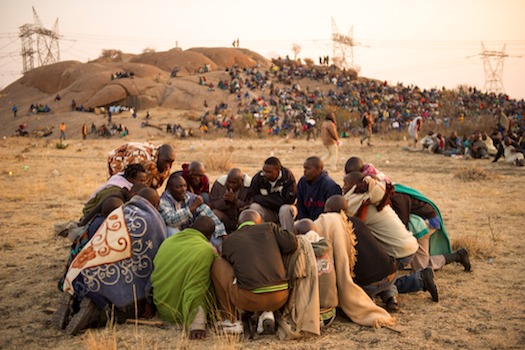- About
- Topics
- Picks
- Audio
- Story
- In-Depth
- Opinion
- News
- Donate
- Signup for our newsletterOur Editors' Best Picks.Send
Read, Debate: Engage.
| April 20, 2016 | |
|---|---|
| topic: | Indigenous people |
| tags: | #Department of Basic Education, #education, #native languages, #South Africa, #South African Teachers Union (Sadtu), #Zulu |
| located: | South Africa |
| by: | Shasha Seakamela |
For one to be able to understand the language and education situation in South Africa today, it is first necessary to look at the historical background of languages in schools and perhaps in tertiary institutions as well.
In previous years, South African children were taught in their home language for the first three years of school. After Grade 3, the vast majority must switch to English as a language of learning and teaching. English has always been South Africa’s dominant academic language. As time goes one realizes that the academic literacy developed in home languages in the first grades is too basic to transfer to English. That has since led to an outcry from various sectors for the government to implement a policy of teaching in mother tongue language in schools.
Last year the High Court in Johannesburg ruled in favor of the school governing bodies that want to teach in their preferred language. In 2016 Grade 1 are the first cohort of children to study three languages as the Department of Basic Education (DoBE) makes African languages compulsory in some schools across South Africa.
Speaking to the media last year after a regular meeting with the Council of Education Ministers, Minister Angie Motshekga mentioned that, “the meeting received a progress report on the Incremental Introduction of Indigenous African Languages. This means that schools that previously only offered English and Afrikaans will now be mandated to offer an African Language from Grade 1 and continue incrementally year-on-year,” said the Minister.
It was after the announcement of matric results earlier this year, the South African Teachers Union (Sadtu) echoed that, “the poor matric results indicate that language still plays a major role in determining the outcome for pupils.”
According to the DoBE, of 2015 matric year, 432,933 wrote English first additional language, 82,649 chose Afrikaans and only 19,186 chose one of the indigenous African languages. Of those, 15,000 chose Zulu. Just 13 candidates wrote in Tsonga, 21 in Venda and 26 in Ndebele.’
Hence the DoBE has since 2012 started to prepare for the implementation of teaching in African languages in schools. Although some educationists welcomed the introduction of indigenous languages some had raised concerns including fitting an additional language into the school timetable. Then also, on one side there has been cries and complaints about the lack of professional development of teachers who are competent in teaching in indigenous African languages.
“A shift is needed in the attitudes of parents and teachers in order to develop and promote the teaching in mother tongue languages at schools in South Africa”, said Professor Thabisile Buthelezi, head of the School of Education Studies at University of Kwazulu Natal; The university that introduced Zulu as a compulsory subject for all undergraduate students since 2014.
Since 2014, some provinces were in the process of appointing pilot schoolteachers and delivering provincial teacher training workshops and on-going support for the pilot schools. The appointment of pilot schoolteachers has taken longer than expected in some provinces and, as a result, the teaching of the third language was delayed. However, in other schools it is already happening with very positive feedback.
Also, to solve the competency issues, the changes from the DoBE on the cards included the implementation of competency tests for the appointment of principals as of January 2016 in all provinces.
“Draft guidelines on new measures for the appointment of principals, which include a component on competency assessments has been developed,” Minister Motshekga said, adding that a draft framework containing areas for assessing principals’ competency has been completed.
Many believe that learning in three languages will definitely foster multilingualism as well as social cohesion. It is also noticeable that in just more than a decade, every high school graduate in South Africa is likely to be proficient in one of the nine African languages.
Few years ago Shasha Seakamela started an initiative called Rural In The Citi (RITC). It was formed on the basis and after realisation that South Africa has shortage of children reading books in mother tongue languages. We therefore started writing children’s books in indigenous languages. However, the program does not only write books but also goes further to read to children in schools. While RITC support and promote mother tongue language teaching, we sometimes encounter different views from teachers and most especially black parents.
By copying the embed code below, you agree to adhere to our republishing guidelines.
